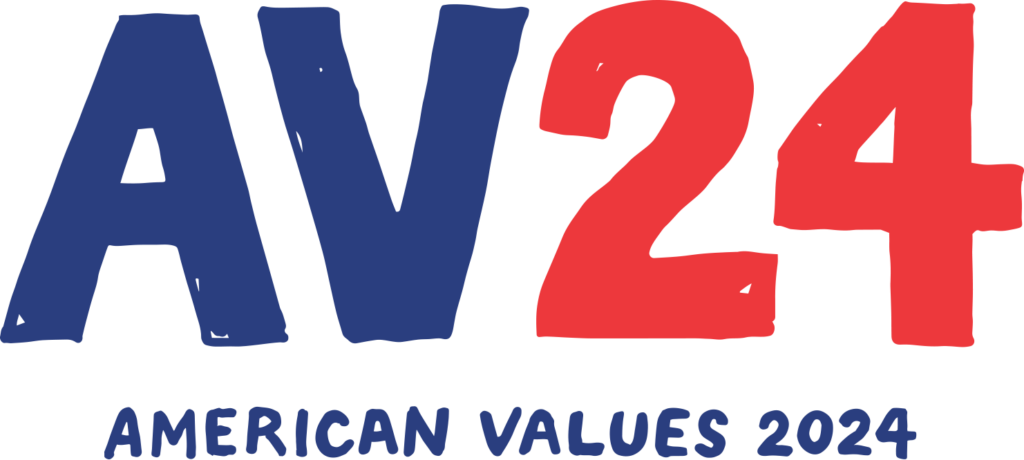A Path to Peace: Kennedy Facilitates Dialogue between a Palestinian and an Israeli in Recent Podcast
American Values 2024 | March 14, 2024
Kennedy also began by giving personal context, explaining that although a Palestinian man named Sirhan Sirhan was convicted of killing his father, Robert F. Kennedy Sr., Kennedy now believes that Sirhan did not fire the fatal shot and that there was a larger plot that has not been fully investigated. He additionally described the roles that his father and his uncle, President John F. Kennedy, played in brokering historic negotiations between Israel and much of the Arab world.
Kennedy was surprised to discover that his latest guests, Daoudi and Halevi, already knew each other. They live approximately 10 minutes apart on different sides of the border in divided Jerusalem. They began a friendship when Halevi wrote a book called Letters to My Palestinian Neighbor, which Daoudi read. Daoudi responded with a letter and thus began a sustained discussion about their mutual goal of finding common ground.
“Let’s talk about, you know, the path to peace,” Kennedy said. “Let’s try to be pragmatic about that.” More facilitator than commentator, Kennedy allowed his guests the opportunity to voice their positions.
Halevi and Daoudi emphasized throughout the podcast that they disagree on many points. Yet both took a friendly and reconciliatory tone, emphasizing that each of their differing opinions was valid and that they ultimately shared the goal of peace.
Daoudi related an amusing story about a rabbi who listened to two men engaged in a heated conflict and told them they were “both right.” When the rabbi’s wife asked him how these opposing parties could both be right, he said, “You are also right.”
This anecdote was brought to bear on the discussion about an ultimate answer to the Israel-Palestine question – whether two states, one state, or something else. The two men acknowledged that both sides want one state “from the river to the sea.” One wants an Arab majority and the other wants a Jewish majority, but due to the impossibility of each side accepting such an outcome, a two-state solution must be the compromise.
Halevi also floated the ideal possibility of a one-state solution, but feared the subsequent fighting that would ensue. He thus argued that a two-state solution is preferable to “one dysfunctional entity.”
Daoudi responded, “I think that [Halevi] is right. [The two-state solution] is a terrible solution. But … I would love that solution, because it’s the only thing on the table for us to move on.”
Both emphasized that the primary goal – rather than focusing on policy specifics – should be simply maintaining their shared desire for a solution and respect for one another.
Kennedy invited them to think about concrete steps that could be taken. Daoudi replied that he thinks previous negotiations and treaties have failed because they were “government to government.” He said “people to people” negotiations are needed. He called for mutual respect, and said that he hoped people could think about the future of their children, not the hatred of the past generations.
Halevi noted that he has the “practical experience of peaceful coexistence” with his Arab neighbors in Israel and said people should draw upon such examples to see the way forward. He offered himself as an example, saying:
I’m not a politician. I’m not a leader. I’m only a writer. All I can do is try to create some language for peace that Palestinians and Israelis may find useful. And so I wrote a book and Mohammad stood up and responded. And our relationship has reverberated way beyond our friendship.
While Halevi’s book did lead to discussion and peace-seeking between the two peoples, Daoudi stressed that the international community should likewise be promoting and supporting the most moderate groups and individuals who are willing to work together, rather than supporting tribalism.
Kennedy echoed Doaudi’s feeling that flawed leadership has played a major role in the problem, asking, “How do you break this cycle?” Kennedy noted that Palestine has been dominated by Hamas and the Palestinian Authority, whose leaders have enriched themselves through corruption, while essentially promoting anti-Semitism and stoking anger among the population.
Halevi responded by saying that extremism has also flourished in Israeli politics. He described how he had participated in protests against the Netanyahu regime and in support of a more moderate government.
Kennedy facilitated a constructive discussion between opposing sides – the type of concrete first step to begin a path toward healing.
While Donald Trump openly cheerleads Israel to “finish the problem,” as reported by Yahoo News, and the Biden administration for the moment supports the Netanhayu government, Kennedy’s podcast revealed the independent presidential candidate’s openness to engaging in dialogue about the conflict. The podcast guests mentioned the importance of using the positive aspects of the two religions to promote common virtues, rather than letting their differences sow division.
Kennedy noted, “You have all these … characteristics of religion at its worst,” that pit the two sides against each other. Instead, he said, religion could be used to find shared values, considering that religious values have historically served as “the highest expression of ethics … which is the end that I think we all try to aspire to.”
Kennedy ended his podcast by emphasizing the need to find common ground rather than focusing on what divides us. He invited the audience to “respond to hatred with love,” “respond to aggression with tenderness,” and “be able to listen.”
